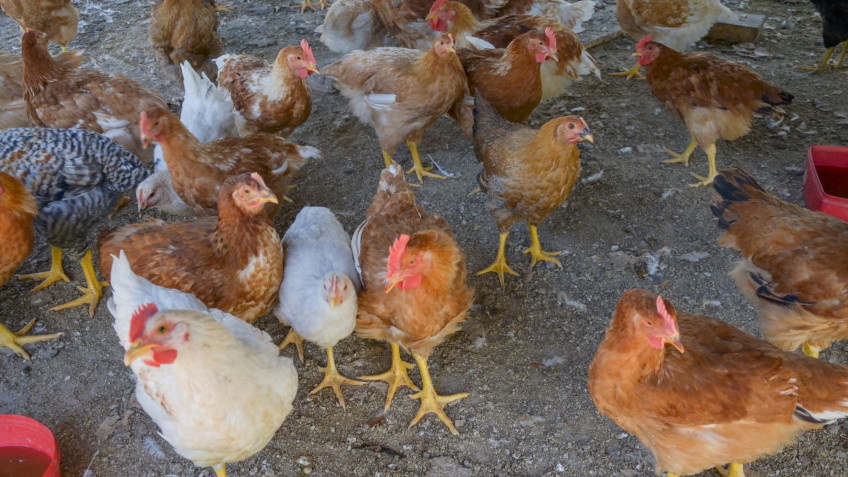More Common Diseases:
- Infectious Coryza: Also known as avian cold, it is a respiratory disease that affects birds, including roosters. It can cause runny nose, eye inflammation, and breathing problems.
- Avian Pox: The skin and mucous membranes of birds are affected by this viral disease. He has scabs on his face, comb and beard. Mosquitoes and other insects can spread it.
- Marek’s: A virus called Marek’s disease affects the nervous system of birds. It can cause confusion and lack of coordination. It is very contagious and spreads through feathers and dust.
- Coccidiosis: a disease caused by protozoa of the Eimeria family. It can damage the digestive tract and cause diarrhea, dehydration, and weight loss.
- Intestinal worms: Several types of intestinal worms can cause digestive problems and weight loss in roosters. Deworming at regular intervals is essential.
- Newcastle disease: A disease caused by a virus that affects both the respiratory system and the nervous system. It is very contagious and affects many birds.
Causes of Diseases:
Diseases of roosters and other domestic birds can have a variety of causes and origins. There are a few ways these diseases can arise:
Natural Pathogens: Some diseases are caused by natural pathogens, such as bacteria, viruses, fungi, and parasites. These pathogens can be present in the environment and affect birds.
Inadequate Environmental Conditions: Dirty, humid or overcrowded environments can promote the spread of diseases. Poor hygiene and handling conditions can create an environment conducive to the development and transmission of pathogens.
Contact with Infected Birds: The introduction of infected birds into a group can lead to the spread of disease. This can occur through purchasing infected birds, trading with other breeders, or contact with wild birds.
Transport and Marketing: Transporting birds from one place to another, especially under stressful conditions, can weaken their immune system and facilitate the appearance of diseases. Purchasing birds at markets or events can increase the risk of introducing pathogens.
Inadequate Immunization: Lack of vaccination programs or incorrect administration of vaccines can leave birds susceptible to specific diseases.
Change in Environmental Conditions: Sudden changes in climate, temperature or humidity can affect the health of birds, making them more prone to diseases.
Treatment or Prevention:
Depending on the disease and its severity, rooster diseases may require different treatment. Below, I give you an overview, but it is important to highlight that you should always seek the guidance of an avian veterinarian for an accurate diagnosis and an appropriate treatment plan. Here are some general standards:
Infectious coryza:
- Antibiotics may be given to combat the bacterial infection.
- Ensure a clean and dry environment to reduce spread.
Chicken pox:
- Treatment may include antibiotics and care to prevent secondary infections.
- In severe cases, interventions may be required to remove the scabs.
Marek’s:
- There is no specific treatment for Marek’s disease.
- Prevention through vaccination is crucial.
Coccidiosis:
- Anti-protozoal medications may be given to treat the infection.
- Improving sanitary conditions and managing population density can help prevent Coccidiosis.
Intestinal worms:
- Specific dewormers can be used to eliminate worms.
- Maintaining a regular deworming program is important for prevention.
Newcastle disease:
- There is no specific treatment, but supportive care can be given.
- Prevention through vaccination is essential.
In any situation, proper management of the environment is essential. Maintaining a clean, dry environment, eating a balanced diet, and having clean water will help recovery. Isolating sick birds can also help prevent the spread of disease in the group.
Bird Health Supplements:
The use of supplements in roosters and poultry can be crucial to ensure they receive the necessary nutrients to maintain their proper health and performance. The following are some reasons why taking supplements may be beneficial:
- Nutritional Balance
- Performance Improvement
- Reproduction Support
- Strengthening the Immune System
- Prevention of Deficiencies
- Specific conditions
Some supplements that may be beneficial include:
 My Account
My Account


 Categories
Categories

















 Visita Nuestra Página en Español
Visita Nuestra Página en Español